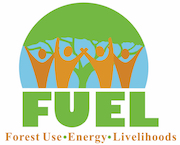It is estimated that rural households derive approximately 30% of total income from forests and other wild areas. Environmental income rivals income from crop production in many places throughout the developing world. This theme explores the role of environmental income in human welfare, including understanding its role in equalizing incomes across households, and serving as a potential pathway out of poverty or poverty trap.
Related Projects:
- CNH-L: Energy Transitions and Environmental Change in East and Southern Africa’s Coupled Human, Terrestrial, and Atmospheric Systems
- Rwanda Inyenyeri Cookstove and Fuel Pellet Impact Evaluation
- Malawi Forest and Livelihoods Survey (MFLS)
- Malawi Household Air Pollution and Tuberculosis Study
- Ghana Small-Scale Biomass Burning Industries (SSBBI) Study
- Uganda Governance, Livelihoods and Sustainability Study (UGLASS)
Related Peer Reviewed Publications

